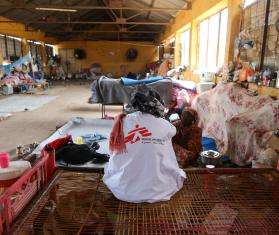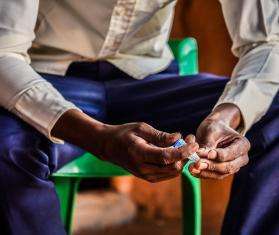On International Safe Abortion Day, September 28, Women First Digital (WFD) are launching an informational video series on self-managed abortion as part of an exciting partnership with the international medical humanitarian organization Doctors Without Borders/Médecins Sans Frontières (MSF) and WFD’s website HowToUseAbortionPill.org (HowToUse). WFD is a collection of online platforms providing information and counseling services on safe abortion, contraception, and sexual and reproductive health.
Available in more than 20 languages, each of the eight videos will answer an essential question being asked about how to safely, effectively, and privately manage medication abortions, also known as abortion with pills. Utilizing the resources of two highly credible and trust-worthy organizations, the series can be easily shared across digital mediums, whether on social media or on private messaging groups, as a resource for anyone considering an abortion with pills.
“The Covid-19 pandemic has put a spotlight on out-of-clinic and self-managed abortion with pills, which is not only a safe and effective method of abortion but preferred by many due to privacy and the comfort of home,” says Claire Crossett, assistant director at WFD. “Make no mistake: abortion is health care, and all people should have the option of seeking care within a clinical setting if they so choose. But there is also substantial and growing research that validates the safety and effectiveness of a self-managed abortion with pills when people are equipped with the right information and resources. That’s why we joined forces with MSF to share a much-needed informational guide on self-managed abortions for all.”
“Our experience in MSF confirms that you don’t need clinical tests, medical equipment, or surgical facilities in order to make an abortion with pills safe,” says Dr. Manisha Kumar, head of MSF's task force on safe abortion care. “What you need for a safe abortion with pills is accurate information, quality medication, and mutual respect and trust.”
In addition to availability on social media, the new videos will be hosted on the HowToUse site under "online courses" as well as here. Viewers will be given the tools to discern how to have a safe abortion with pills—what factors to consider, how to use the medication correctly, and what to expect during and after the process.
To ensure the information is widely accessible and understood, the video will be available in English, French, Arabic, Hindi, Spanish, and Portuguese with subtitles in 21 more languages. Each 2–3-minute video provides factual, evidence-based information about self-managed abortion using warm and approachable animated graphics and a reassuring and informative tone.
The questions addressed within the videos include:
- How to confirm a pregnancy?
- How far along is my pregnancy?
- How does an abortion with pills work?
- How do I take mifepristone and misoprostol to have an abortion before 13 weeks?
- How do I only take misoprostol to have an abortion before 13 weeks?
- What will I experience during an abortion with pills?
- What are the signs of complication during an abortion with pills?
- What happens after I have an abortion with pills?
“Self-managed abortion is an umbrella term: it can capture many different pathways to care," says Crossett. "But across the board, we know that self-managed abortion with pills can reduce burden on health care systems, increase access to care, and shift power paradigms around an essential health care service that has become far too over-medicalized and over-regulated, We are thrilled to partner with MSF to help promote access to information that is safe, clear, and judgement free—the way all health care information should be.”
"Our role as health care providers should be to make abortion care as safe, comfortable, and dignified as possible," says Dr. Kumar. "This means enabling people to decide for themselves how, when, and where they have an abortion and with whose support, not being gatekeepers to this essential health care. Self-managed abortion is about more than increasing access: It's about upholding people’s autonomy and ensuring they can take the lead in their own care. People everywhere should have access to respectful and safe abortion care."






